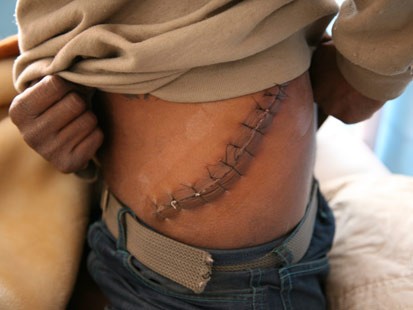
Egypt’s top prosecutor on Tuesday referred 41 suspects to trial on criminal charges of illegally harvesting and transplanting human organs, as well as human trafficking.
A statement from the public prosecutor’s office said that the suspects accumulated over LE20 million for brokering, harvesting and transplanting human organs, abusing their positions as civil servants.
The Administrative Control Authority announced in December 2016 that it had detected the largest international network in the country for trafficking human organs.
The network includes university professors, doctors, nurses and workers at medical centers and hospitals, as well as intermediaries and brokers.
The network took advantage of the poor economic conditions of some Egyptians, trafficking their organs in exchange for little money, while profiting exorbitantly.
Investigations by the Public Prosecutor’s Office, interrogations, witnesses’ testimonies and the analysis of technical evidence — including phone calls, electronic communications and video footage of a number of foreign patients — have proven that the suspects are guilty.
The prosecution’s investigations implicated 20 doctors from teaching & government hospitals, along with 10 nurses, nine brokers & middle-men and two employees of the blood bank.
The defendants were involved in 29 operations, illegally trafficking human kidneys.
The investigations found that the defendants ‘bought’ the kidneys for prices ranging from LE10,000 to LE15,000, later selling them for LE80,000 to LE120,000 to foreign, mainly Arab, patients.
The transplants were carried out without following the medical rules and ethics legally required, some of which were carried out at Dar al-Shefa Hospital in Helwan, al-Basha Specialist Hospital in Faisal, al-Amal Center for General Surgery in Mariuteya and Dar Ibn al-Nafis Hospital, with some operations taking place in a basement of a building in Mokattam.
None of the aforementioned hospitals and centers are licensed to host this kind of organ transplantation.
As a result, an Egyptian citizen who sold their kidney died after the harvesting operation, while three recipients of the kidneys are now suffering from a permanent disability.



